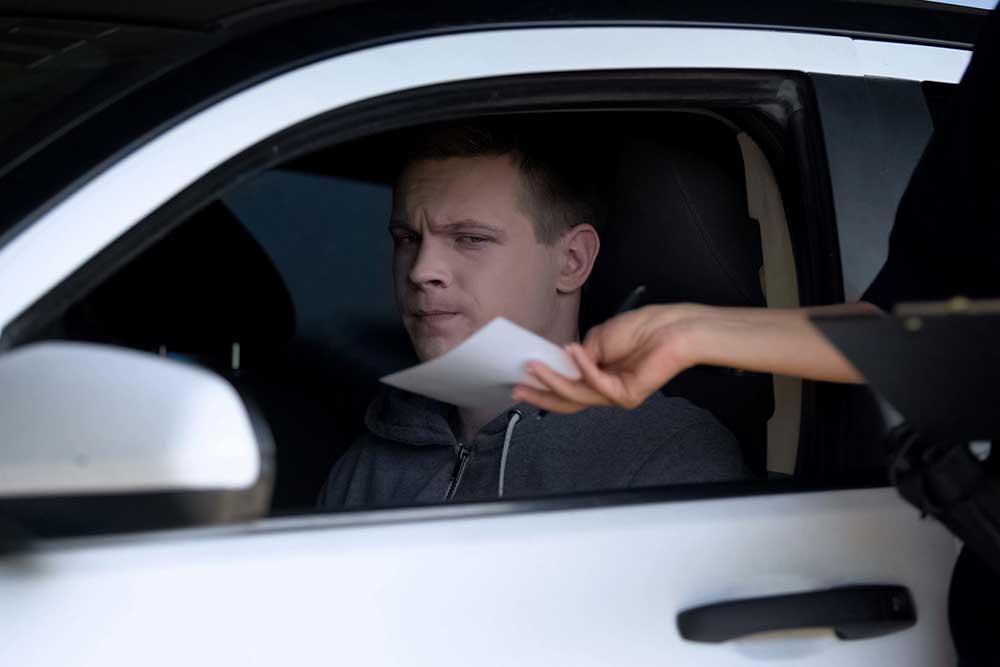
What Happens After a Traffic Violation Arrest in North Carolina?
Being arrested for a traffic violation in North Carolina can be a stressful and confusing experience. Whether you’re facing charges for speeding, reckless driving, or driving with a suspended license, understanding what happens next is crucial for protecting your rights and your driving record. Here’s what you need to know about the legal process following a traffic violation arrest in North Carolina.
Step 1: The Arrest and Charges
After being pulled over and arrested for a traffic violation, the first step is understanding the charges against you. Traffic violations can range from minor infractions to more serious misdemeanors or even felonies. The most common traffic violations that lead to arrest in North Carolina include:
- Driving While Impaired (DWI)
- Reckless Driving
- Driving with a Suspended or Revoked License
- Excessive Speeding
Once you are arrested, law enforcement will either issue you a citation or bring you to the station for processing. You will be informed of the charges and the next steps in the legal process.
Step 2: Release and Bail
In most traffic violation cases, you may be released on bail shortly after your arrest. If you’re charged with a misdemeanor traffic violation, the bail is often set at a reasonable amount, allowing you to return home while awaiting your court appearance. In more serious cases, such as a DWI, the bail amount could be higher, or you may need to wait until a judge sets your bail during a first appearance.
Your attorney can help ensure that bail is set fairly and can represent you during any bail hearings.
Step 3: Court Appearance and Legal Process
After your release, you will be scheduled for an initial court appearance, often referred to as a first appearance or arraignment. During this hearing, you will have the opportunity to:
- Hear the charges against you
- Enter a plea (guilty, not guilty, or no contest)
- Set a court date for further hearings
This is where having an experienced criminal defense attorney is crucial. At DeMent Askew Johnson & Marshall, our attorneys will help you understand the charges and potential consequences, guiding you through the legal process and advocating for your best interests.
Step 4: The Role of the Prosecutor and the Judge
In any traffic violation case, both the prosecutor and the judge play critical roles. Understanding their responsibilities and influence on your case is important:
- The Prosecutor: The prosecutor’s job is to represent the state of North Carolina and seek a conviction in your case. They are responsible for presenting evidence, building the case against you, and pursuing the penalties they believe are appropriate. A skilled criminal defense attorney, like those at DeMent Askew Johnson & Marshall, will engage with the prosecutor, challenge the evidence, and negotiate for reduced charges, dismissed cases, or alternative sentencing options like probation or traffic school.
- The Judge: The judge oversees the court proceedings and ensures that the law is applied fairly. They have the authority to decide on matters of bail, hear motions from your attorney, accept or reject plea agreements, and ultimately hand down a sentence if you are convicted. A judge’s decision will be based on the evidence and arguments presented by both the prosecution and defense. At DeMent Askew Johnson & Marshall, our attorneys are experienced in presenting strong, persuasive arguments to the court to achieve the best possible outcome for our clients.
Step 5: Building a Defense
Once your court date is set, your attorney will begin preparing a defense. Depending on the nature of the traffic violation, this can include:
- Investigating the circumstances of the arrest (for example, challenging the officer’s reason for pulling you over)
- Reviewing evidence, such as dashcam footage or breathalyzer results
- Negotiating with the prosecutor to reduce or dismiss charges
At DeMent Askew Johnson & Marshall, we have decades of experience defending clients against traffic violation charges in North Carolina. Our team will thoroughly investigate your case and develop a strategy aimed at securing the best possible outcome.
Step 6: Possible Outcomes
Traffic violation cases can result in several different outcomes depending on the charges, the evidence, and your defense. Possible outcomes include:
- Dismissal of charges
- Reduction of charges to a lesser offense
- Plea agreements that reduce penalties
- Conviction, which could result in fines, points on your driver’s license, license suspension, or jail time (for more serious offenses)
Your attorney’s goal is to minimize the impact of the charges on your driving record and your life. If you are facing penalties that could lead to a license suspension or revocation, your lawyer may be able to negotiate alternatives, such as defensive driving courses or probation.
Step 7: Post-Conviction Remedies
If you are convicted of a traffic violation, there may still be options to appeal or reduce the penalties. Depending on the specifics of your case, your attorney can explore post-conviction remedies such as:
- Filing an appeal
- Requesting a sentence modification
- Negotiating for a reduced sentence
At DeMent Askew Johnson & Marshall, we continue to support our clients even after a conviction, ensuring that all possible avenues for relief are explored.
Protect Your Rights with DeMent Askew Johnson & Marshall
If you’ve been arrested for a traffic violation in North Carolina, having a skilled criminal defense attorney on your side can make all the difference. At DeMent Askew Johnson & Marshall, our experienced attorneys are dedicated to protecting your rights and achieving the best possible outcome for your case. Contact us today for a consultation, and let us help you navigate the legal process.